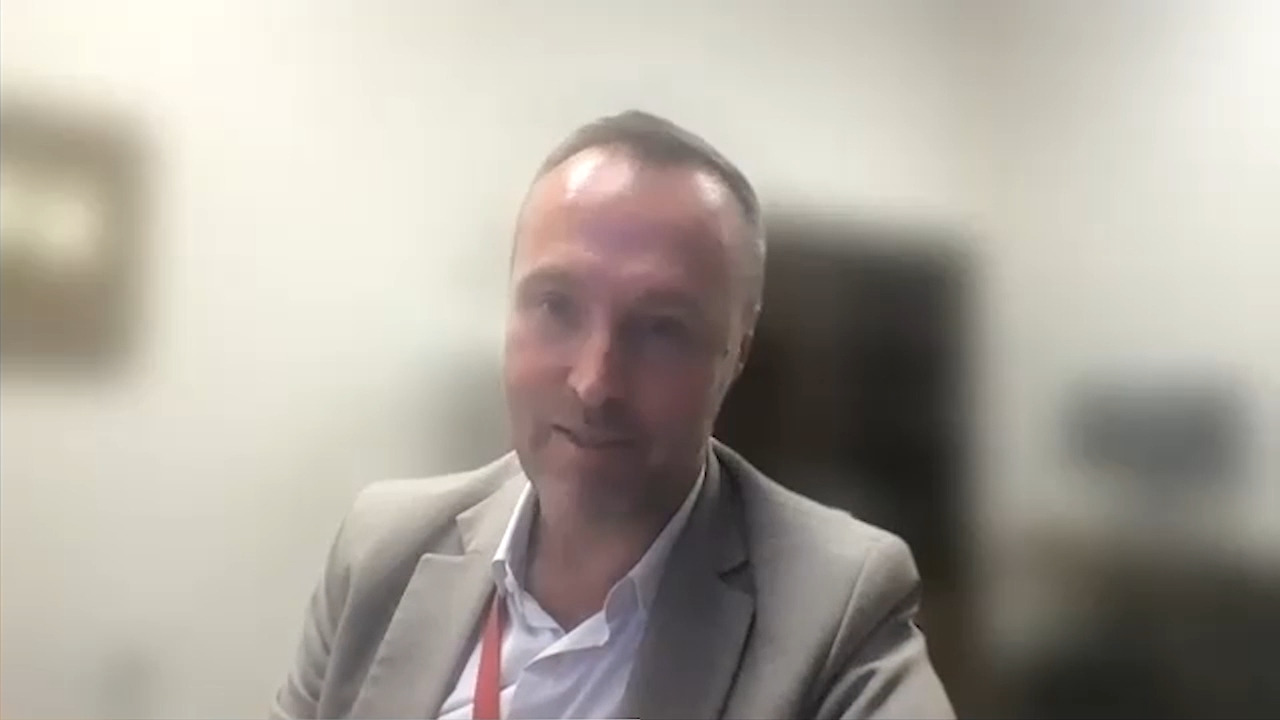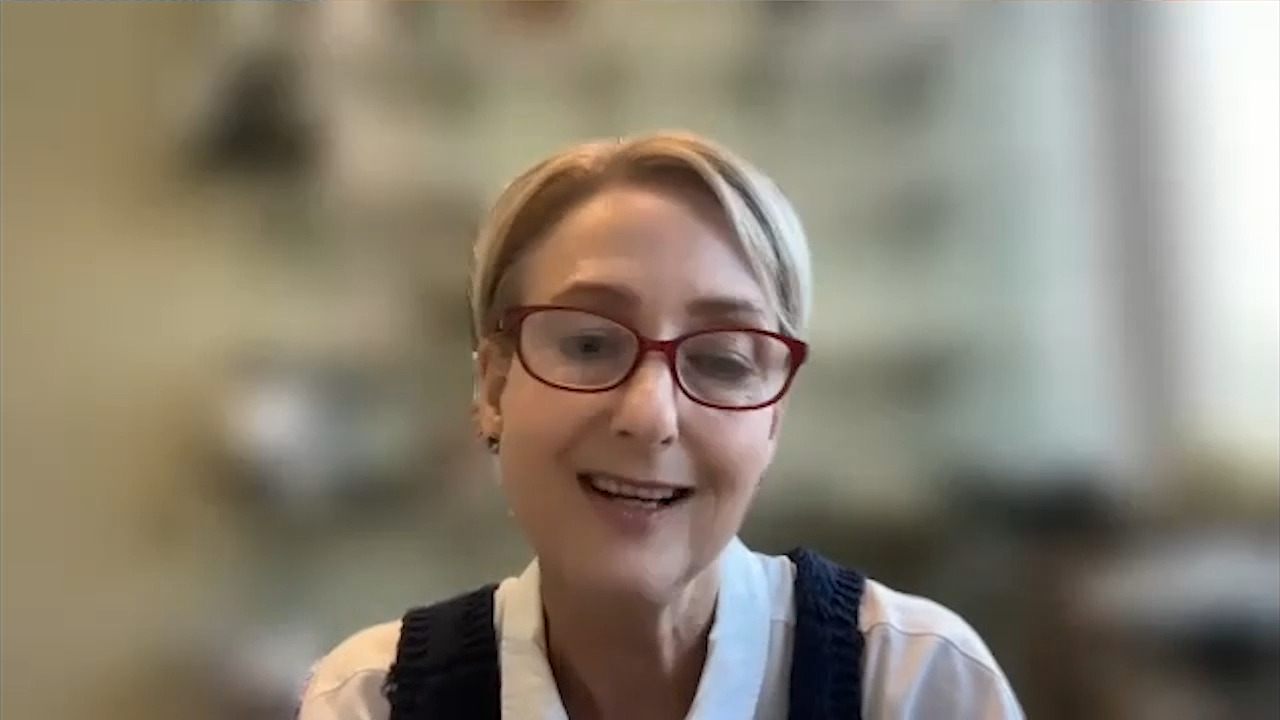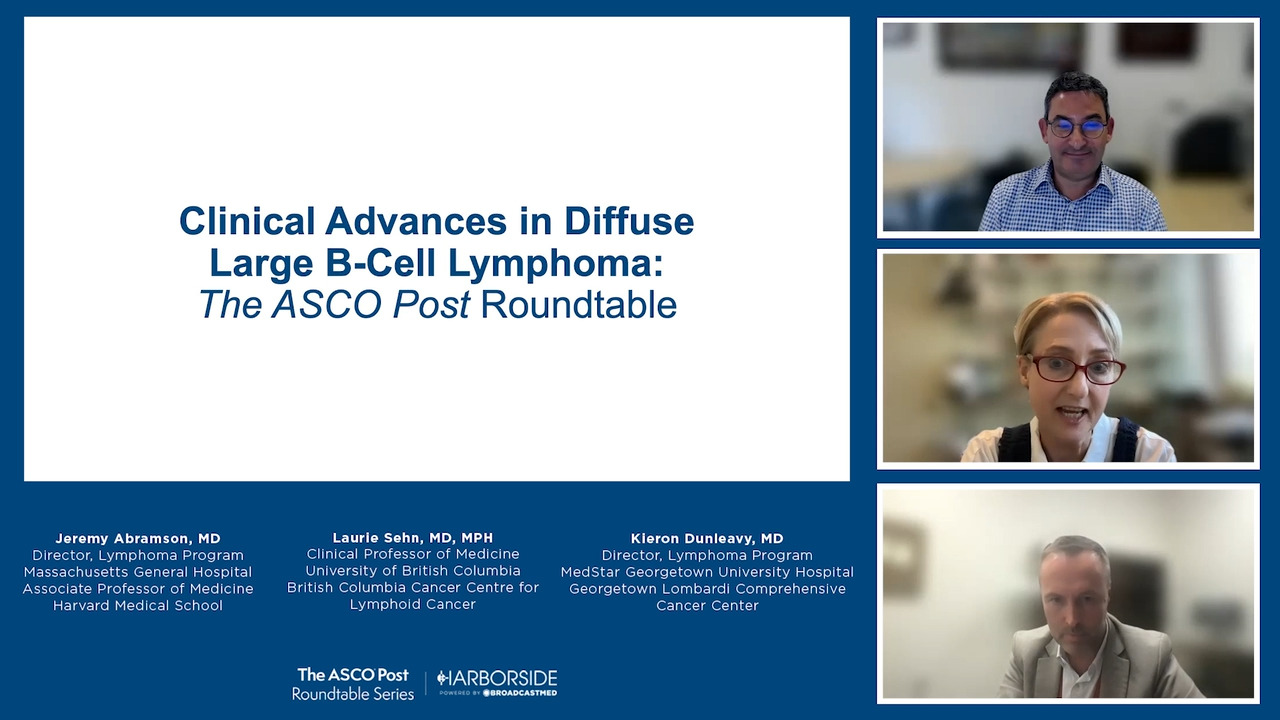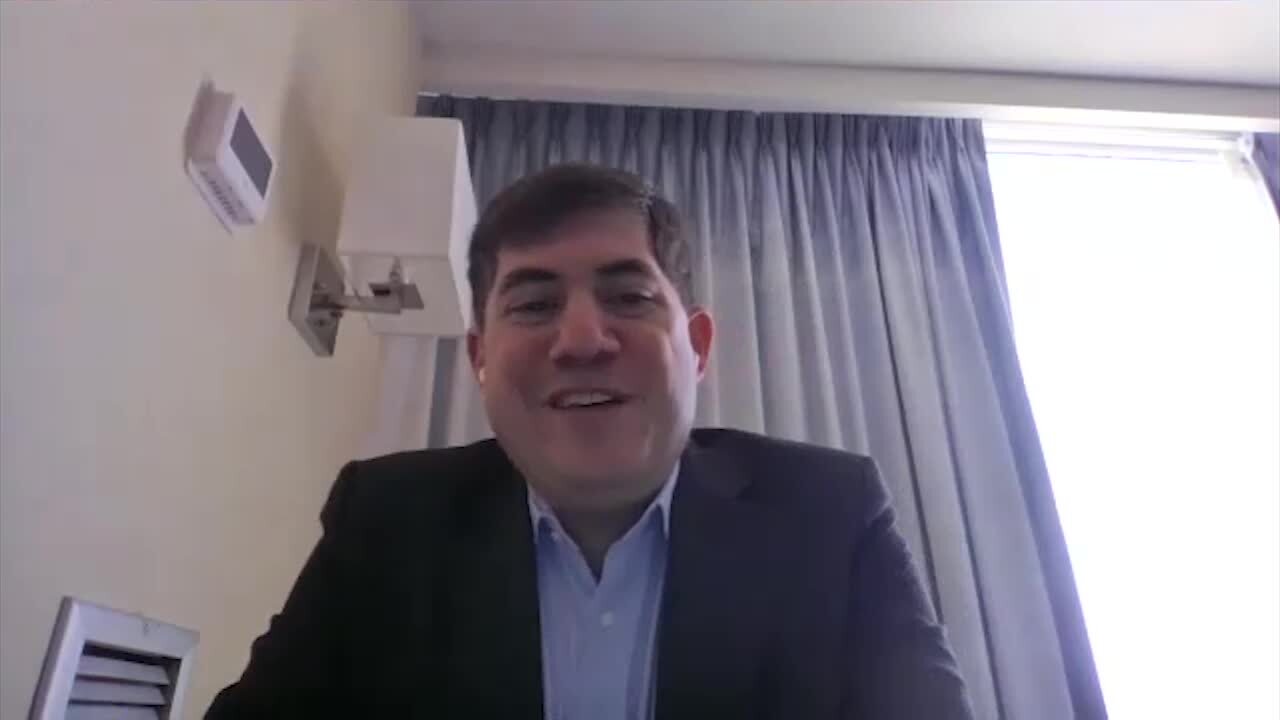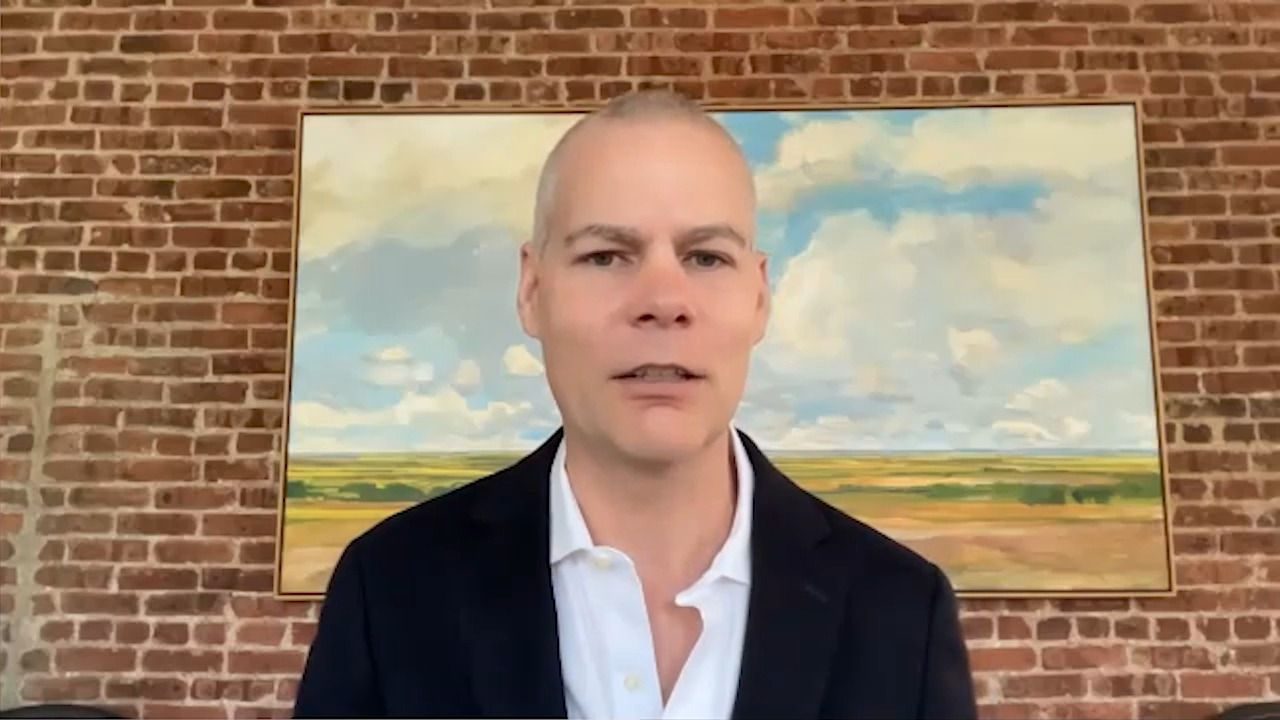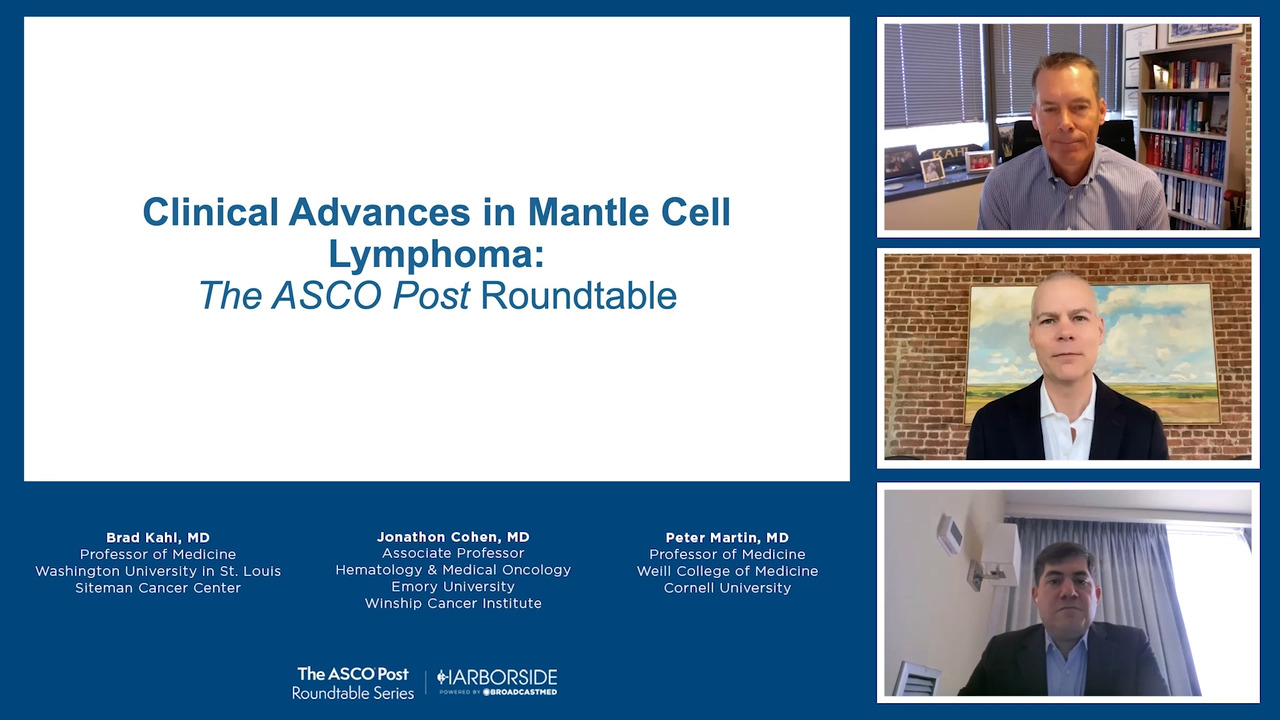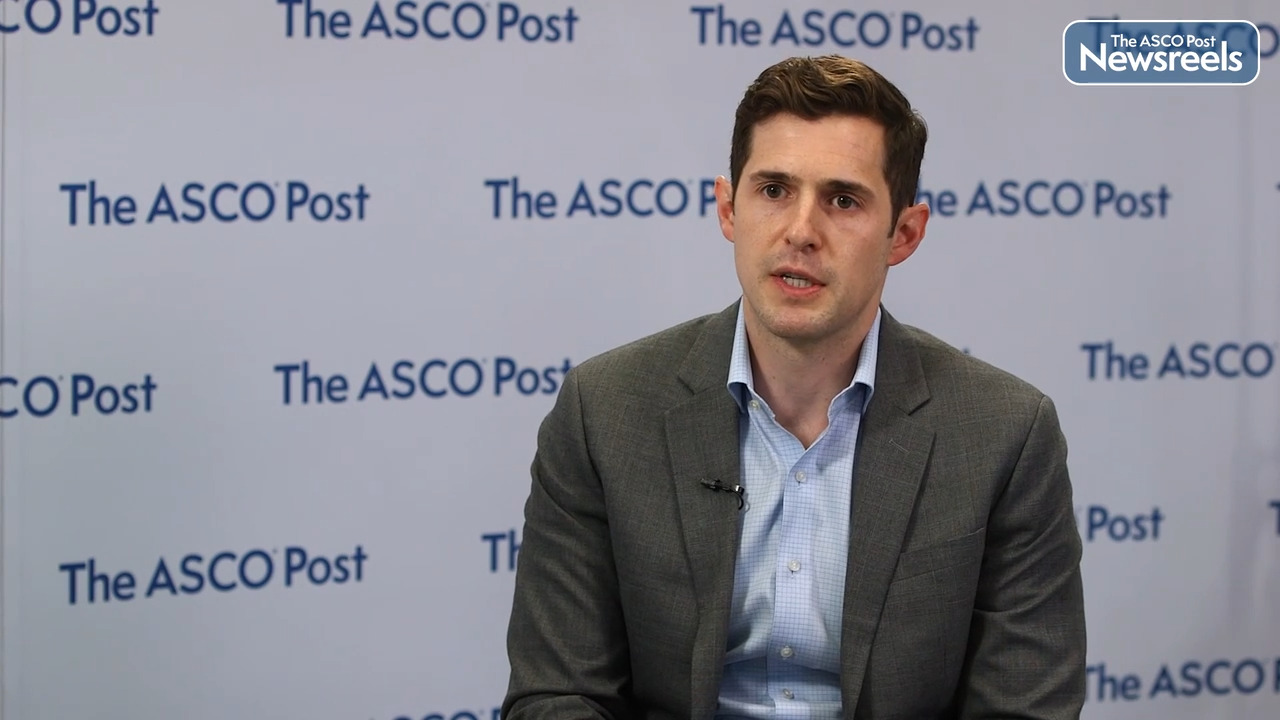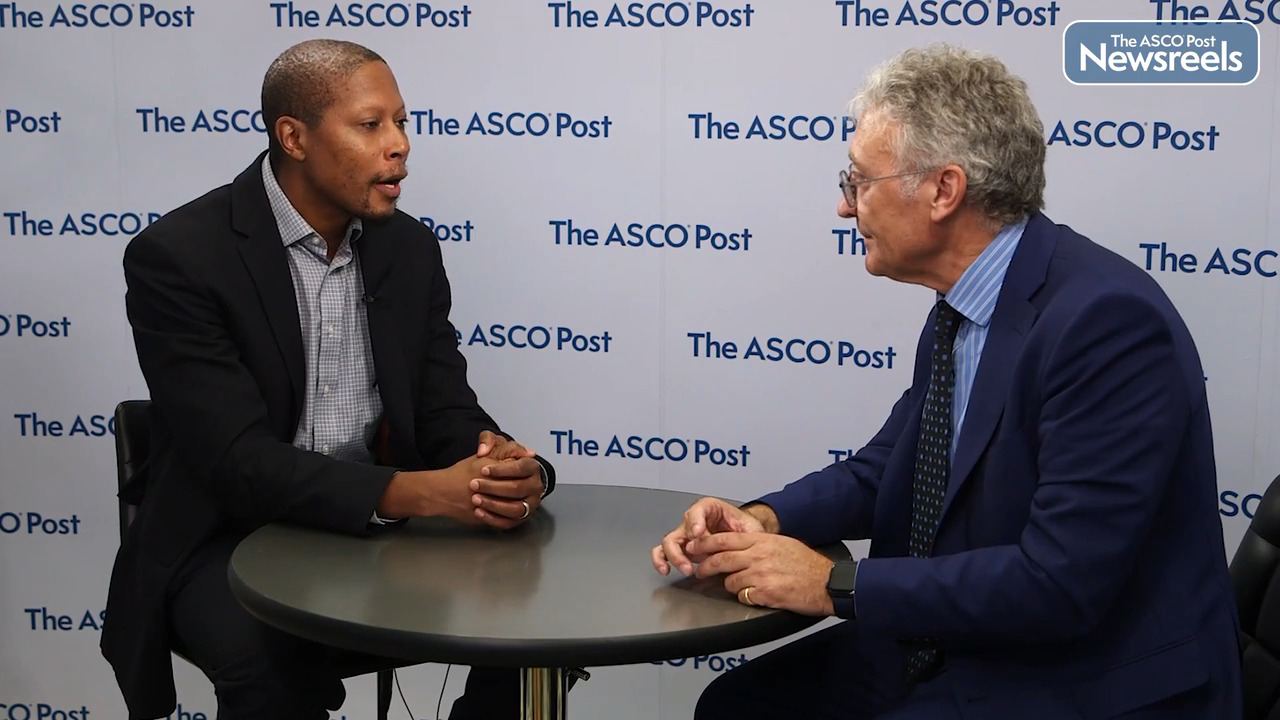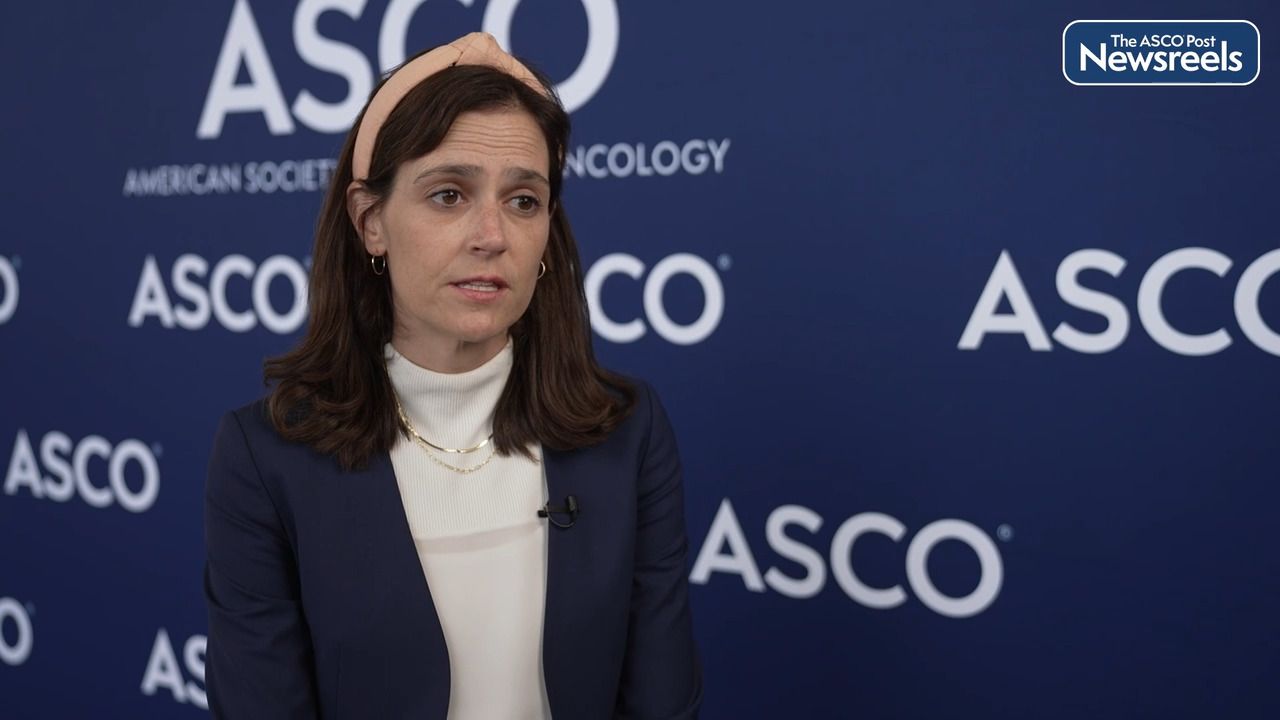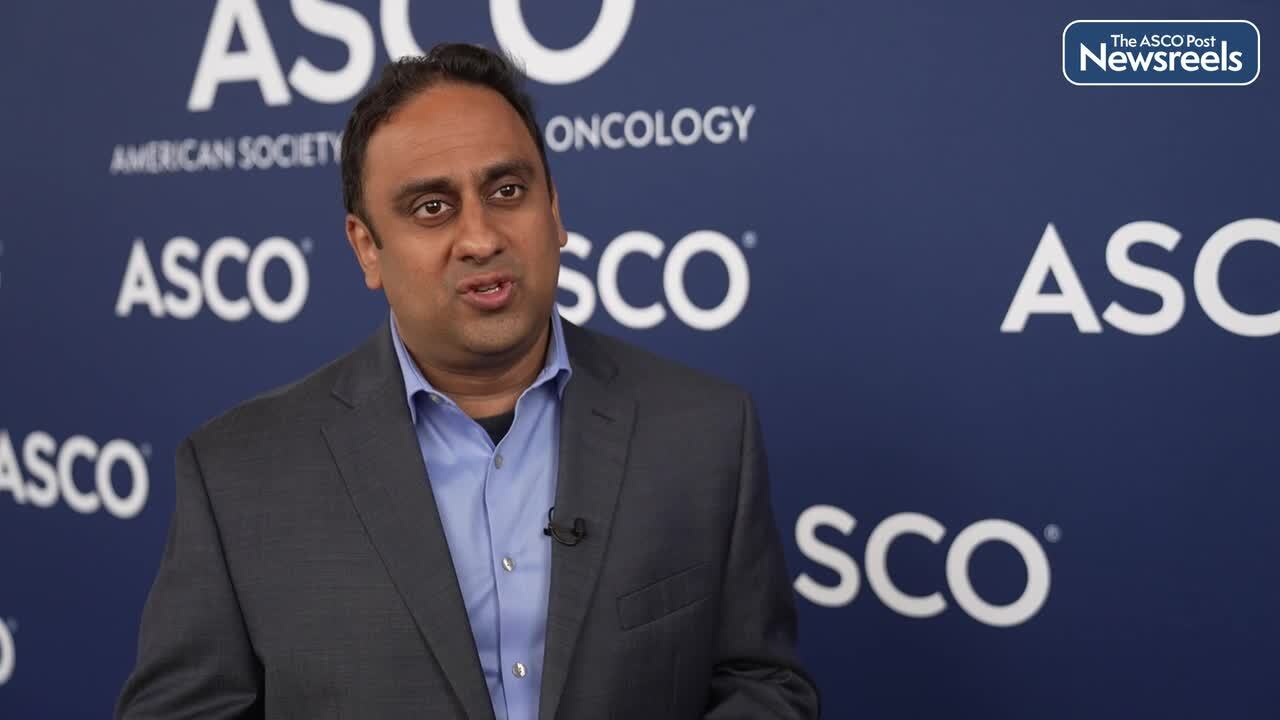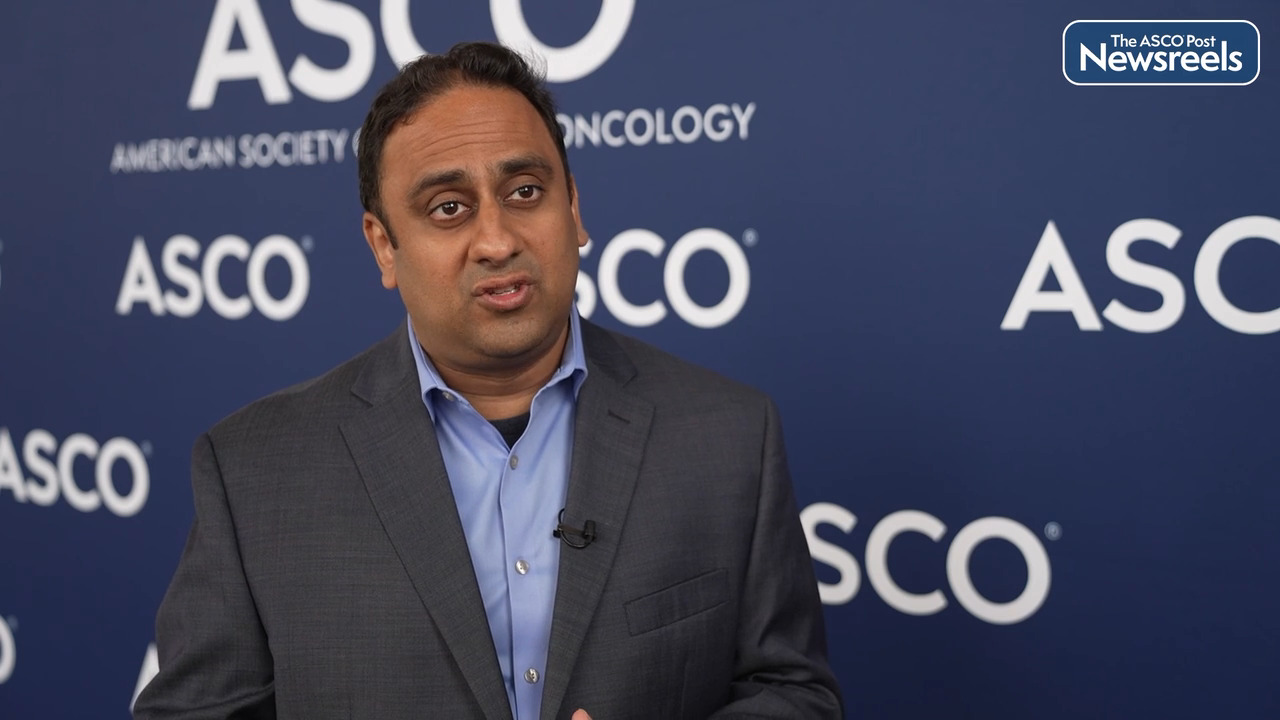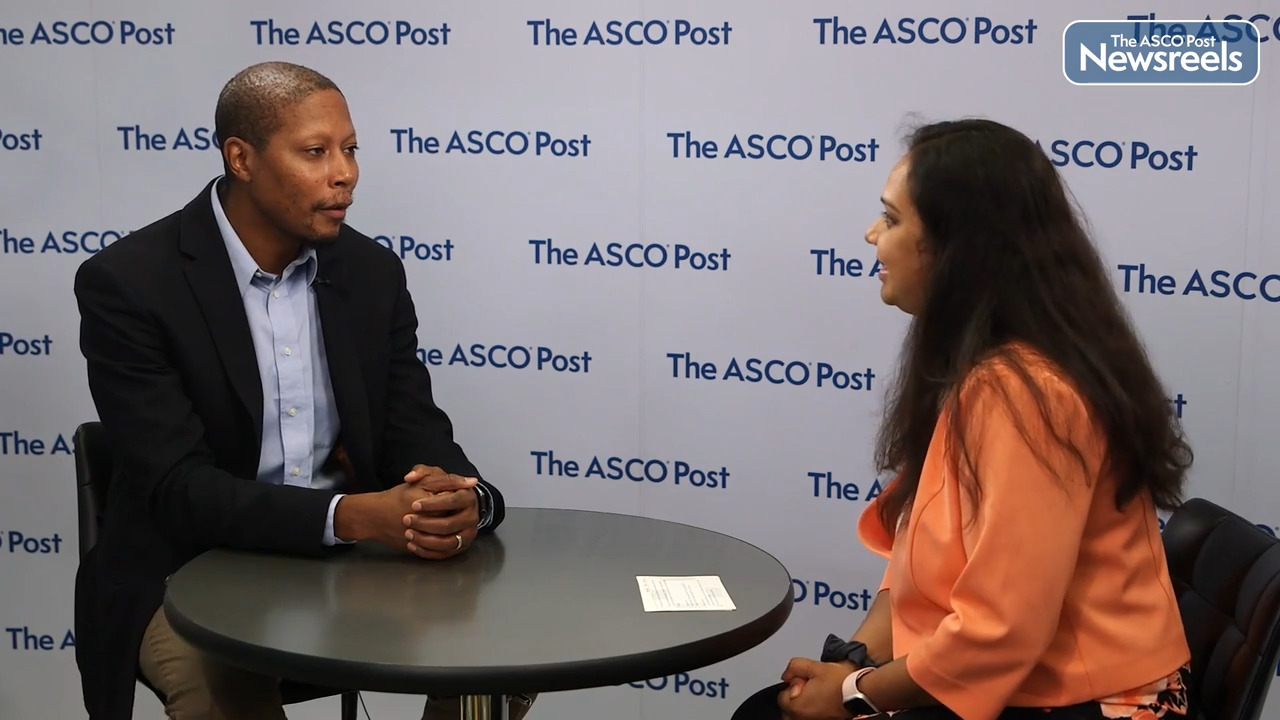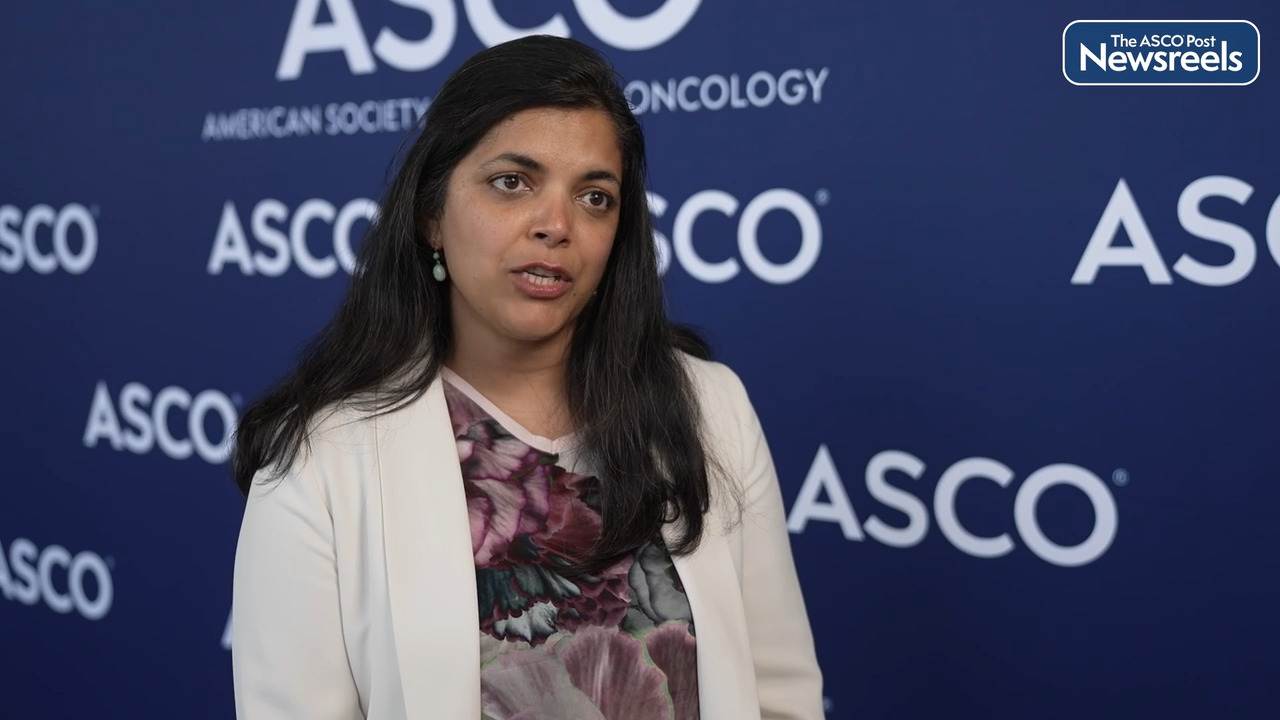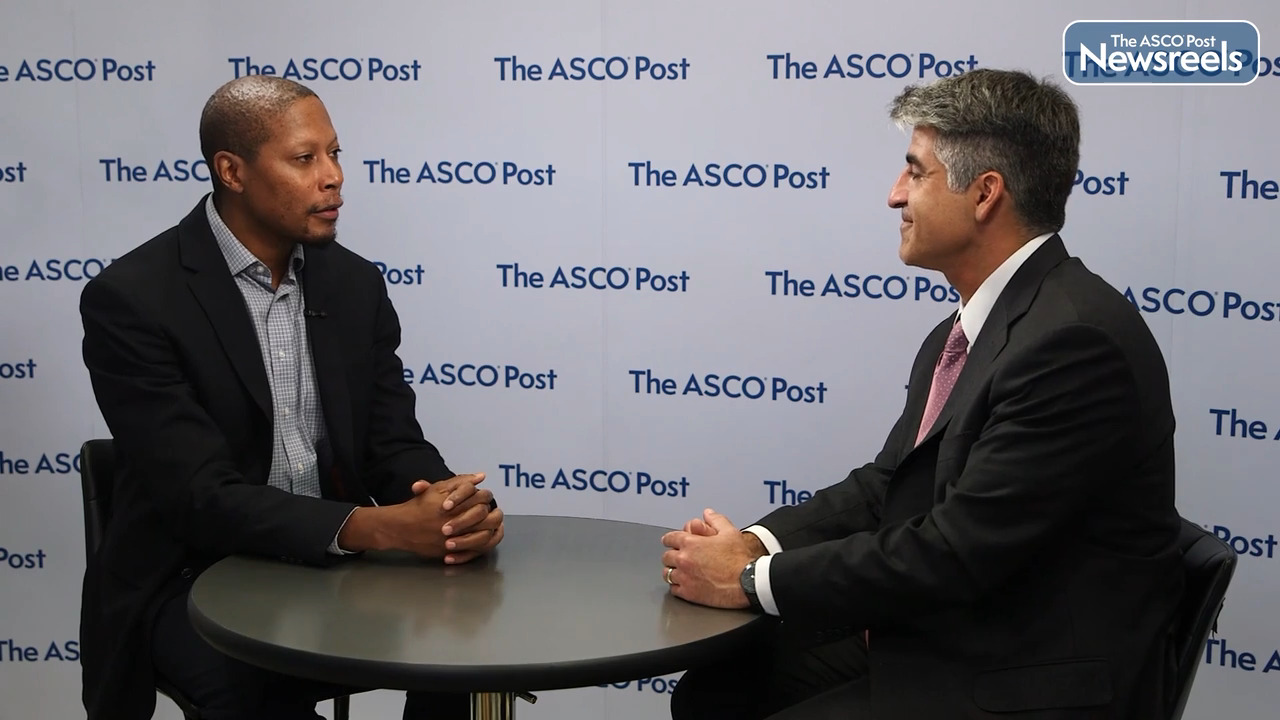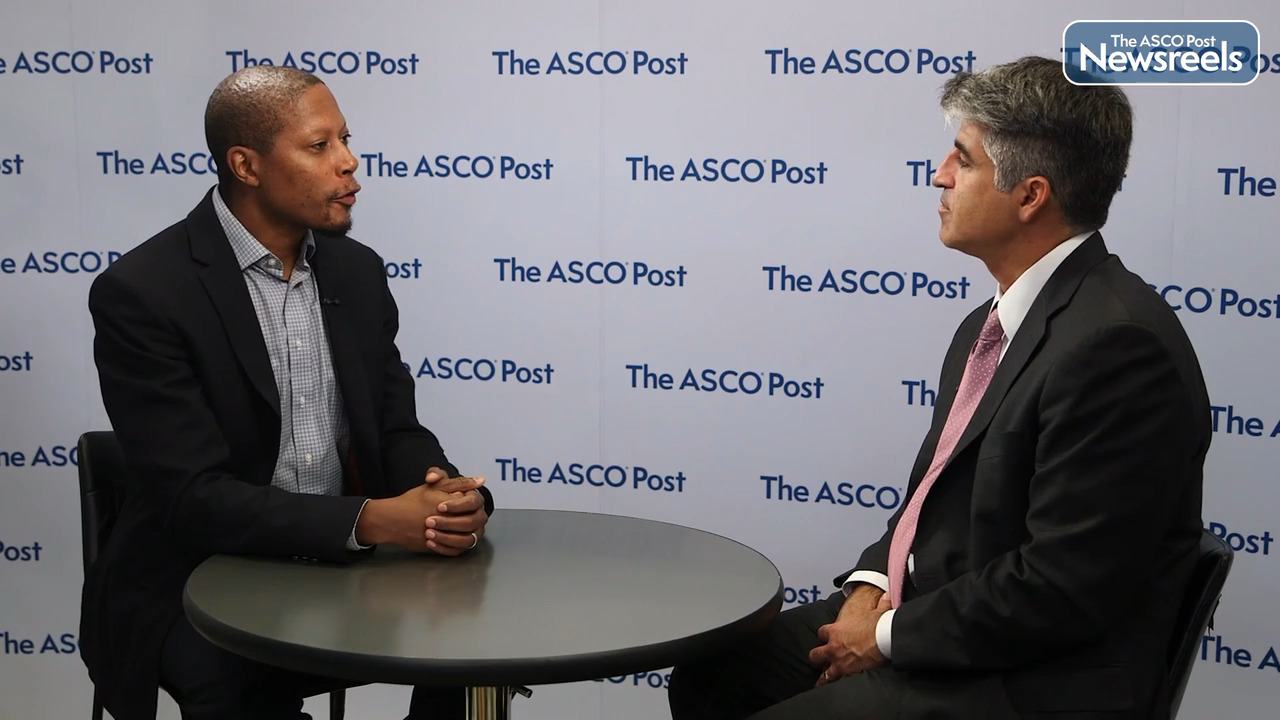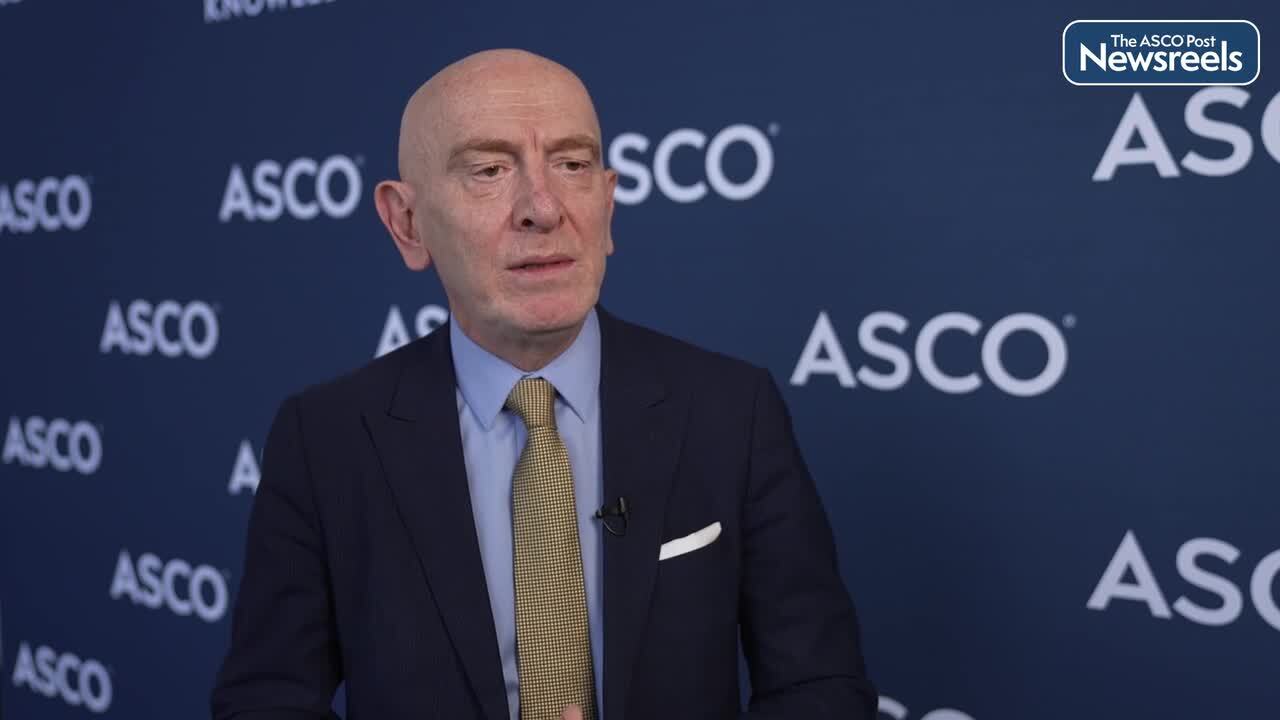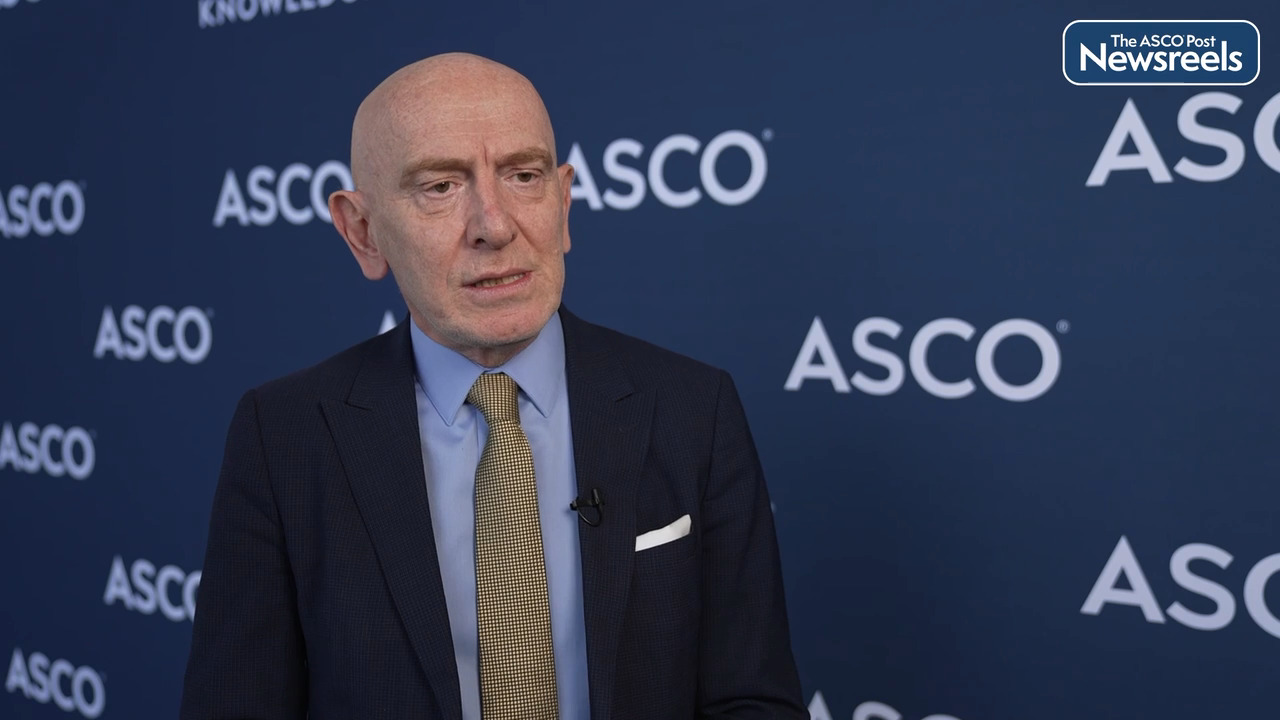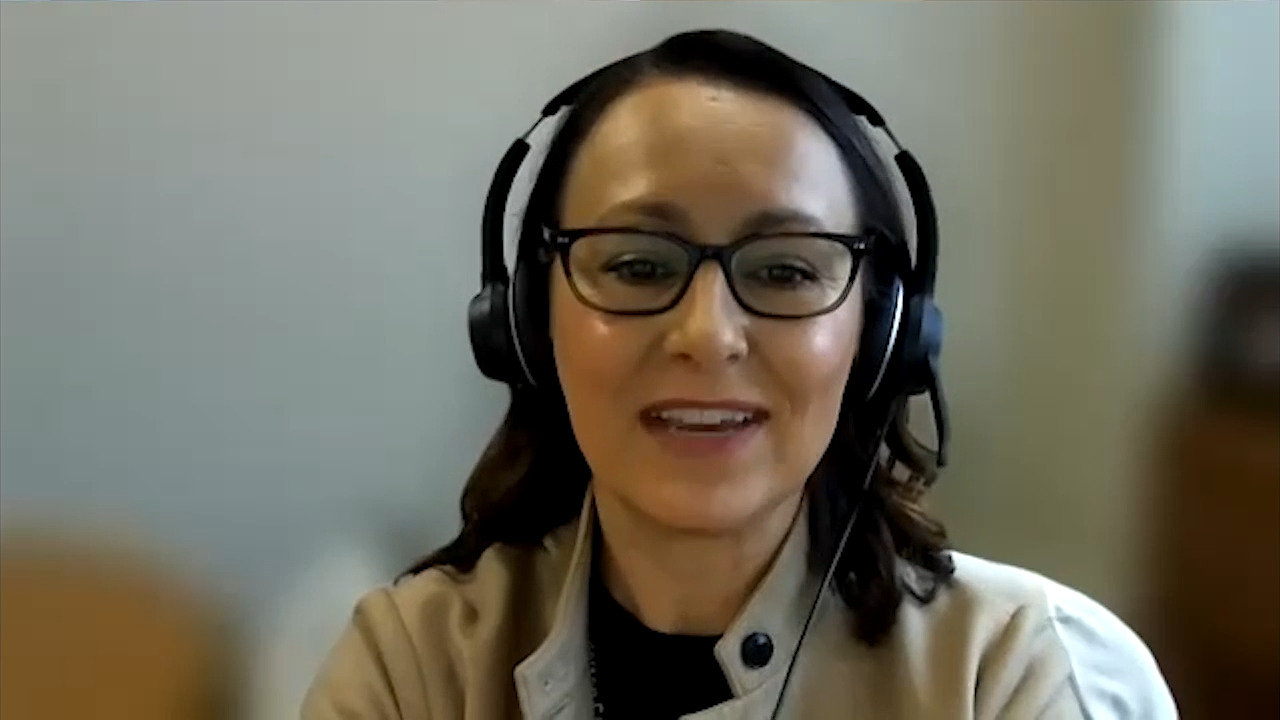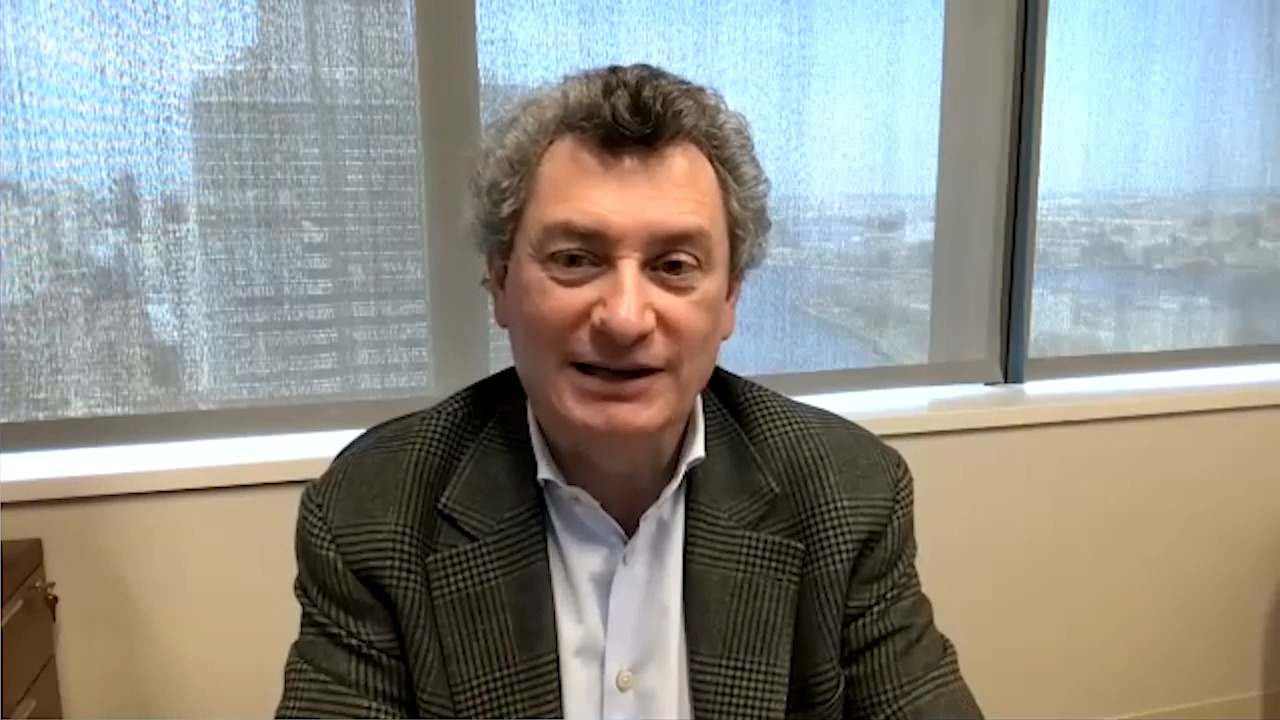MAGNOLIA Trial: Zanubrutinib Yields High Response Rates With Low Rate of Cardiac Events in Marginal Zone Lymphoma
Zanubrutinib—a next-generation Bruton’s tyrosine kinase (BTK) inhibitor—achieved high response rates and durable disease control with a low incidence of cardiac effects in patients with relapsed or refractory marginal zone lymphoma, according to updated findings from the final analysis of the phase ...
SWOG S1826: Nivolumab Plus AVD Surpasses Standard-of-Care Combination Regimen in Patients With Advanced Hodgkin Lymphoma
The addition of nivolumab, an immune checkpoint inhibitor, to chemotherapy significantly improved progression-free survival in adults and children with advanced classical Hodgkin lymphoma with reduced toxicity compared with standard-of-care brentuximab vedotin plus chemotherapy, according to the...
ZUMA-7: Primary Overall Survival Analysis Supports Axicabtagene Ciloleucel as Second-Line Therapy in Advanced Lymphoma
In the primary overall survival analysis of ZUMA-7, second-line treatment with axicabtagene ciloleucel significantly improved overall survival compared with high-dose therapy plus autologous stem cell transplantation (auto-HCT) in patients with early relapsed or refractory large B-cell lymphoma....
Long-Term Outcomes With Zanubrutinib vs Ibrutinib in Symptomatic Waldenström’s Macroglobulinemia
Details of the final analysis of the phase III ASPEN trial, which compared zanubrutinib and ibrutinib in symptomatic patients with Waldenström’s macroglobulinemia, were published in the Journal of Clinical Oncology by Meletios A. Dimopoulos, MD, and colleagues. The study supported the September...
Matthew J. Frank, MD, PhD, on Large B-Cell Lymphoma: New Data on CD22 CAR T-Cell Therapy
Matthew J. Frank, MD, PhD, of Stanford University School of Medicine, discusses new findings showing that CD22 chimeric antigen receptor (CAR) T-cell therapy is an effective and safe salvage therapy for patients with CAR19-refractory large B-cell lymphoma. A multicenter phase II clinical trial is planned for 2023 (Abstract S230).
Glofitamab-gxbm for Select Relapsed or Refractory Large B-Cell Lymphomas
On June 15, 2023, the bispecific CD20-directed CD3 T-cell engager glofitamab-gxbm was granted accelerated approval for relapsed or refractory diffuse large B-cell lymphoma (DLBCL)–not otherwise specified or large B-cell lymphoma (LBCL) arising from follicular lymphoma after at least two lines of...
Expert Point of View: Corey Speers, MD, PhD, and Julie R. Gralow, MD, FACP, FASCO
ASCO expert Corey Speers, MD, PhD, Professor of Radiation Oncology at the University Hospitals Seidman Cancer Center, Cleveland, provided thoughts on the IELSG37 trial at a press briefing. “The investigators should be congratulated for running the largest ever trial in primary mediastinal B-cell...
Omitting Mediastinal Radiotherapy in Some Patients With Primary Mediastinal B-Cell Lymphoma After Immunochemotherapy
In the largest prospective study of patients with primary mediastinal B-cell lymphoma, radiation therapy was omitted in complete responders to immunochemotherapy without compromising outcomes. These findings were presented at the 2023 ASCO Annual Meeting.1 “Mediastinal radiotherapy may be safely...
Third-Line Treatment for Relapsed/Refractory Diffuse Large B-Cell Lymphoma
This is Part 3 of Clinical Advances in Diffuse Large B-Cell Lymphoma, a three-part video roundtable series. Scroll down to watch the other videos from this Roundtable. In this video, Drs. Jeremy Abramson, Laurie Sehn, and Kieron Dunleavy discuss the third-line treatment of relapsed/refractory diffuse large B-cell lymphoma (DLBCL). Their patient was most recently treated with axicabtagene ciloleucel as second-line treatment for DLBCL, non–germinal center subtype, which had originally relapsed 11 months after treatment with pola-R-CHP. She develops grade 2 cytokine-release syndrome on day 2 of treatment with axicabtagene ciloleucel, but her symptoms resolve rapidly upon receiving tocilizumab. She develops confusion on day 4, consistent with grade 2 ICANS, for which she receives dexamethasone with improvement over 7 days. She has a very good partial response at 30 days, but at day 60 her disease progresses again. As they consider the next steps for this patient, the faculty discuss the importance of tailoring treatment to the patient’s needs and goals when therapy is unlikely to be curative. They review current novel therapies that have entered the treatment landscape, including combinations such as polatuzumab plus bendamustine/rituximab, as well as the recently approved bispecific antibodies glofitamab and epcoritamab.
Second-Line Treatment of Relapsed/Refractory Diffuse Large B-Cell Lymphoma
This is Part 2 of Clinical Advances in Diffuse Large B-Cell Lymphoma, a three-part video roundtable series. Scroll down to watch the other videos from this Roundtable. In this video, Drs. Jeremy Abramson, Laurie Sehn, and Kieron Dunleavy discuss the second-line treatment of relapsed/refractory diffuse large B-cell lymphoma (DLBCL). Their patient is now 73 years of age and originally received pola-R-CHP for her DLBCL. Eleven months after completing treatment, she experiences biopsy-proven relapse involving nodes above and below the diaphragm and multifocal bone involvement. The faculty review their next steps in the second-line setting. They discuss considerations when selecting among CAR T-cell products, the logistics of CAR T-cell therapy and approaches to bridging therapy, as well as options for second-line therapy for patients who are not eligible for CAR T-cell therapy.
Newly Diagnosed High-Risk Diffuse Large B-Cell Lymphoma
This is Part 1 of Clinical Advances in Diffuse Large B-Cell Lymphoma, a three-part video roundtable series. Scroll down to watch the other videos from this Roundtable. In this video, Drs. Jeremy Abramson, Laurie Sehn, and Kieron Dunleavy discuss the treatment of newly diagnosed high-risk diffuse large B-cell lymphoma (DLBCL). The patient is a 72-year-old woman who presents with adenopathy, fevers, and drenching night sweats. An axillary lymph node biopsy reveals DLBCL, non–germinal center B-cell subtype, without translocations of MYC or BCL2, but with IHC expression. Positron-emission tomography/computed tomography shows stage IV disease with liver and kidney involvement. Her LDH is elevated, ECOG performance status is 1, and International Prognostic Index is 4. In the conversation that follows, the faculty discuss their recommended chemotherapy regimen for patients such as this, whether there are patient- or disease-specific factors to consider when selecting between R-CHOP and Pola-R-CHP, and the role of CNS prophylaxis.
Overall Survival With Axicabtagene Ciloleucel in Large B-Cell Lymphoma: Results From ZUMA-7
As reported in The New England Journal of Medicine by Jason R. Westin, MD, and colleagues, the overall survival analysis from the phase III ZUMA-7 trial showed significant benefit with axicabtagene ciloleucel vs standard care in patients with early relapsed or refractory large B-cell lymphoma. The...
Pirtobrutinib After Covalent BTK Inhibitor Treatment in Relapsed or Refractory CLL/SLL
In the phase I/II BRUIN trial reported in The New England Journal of Medicine, Anthony R. Mato, MD, and colleagues found that the noncovalent (reversible) Bruton’s tyrosine kinase (BTK) inhibitor pirtobrutinib exhibited strong activity in patients with relapsed or refractory chronic lymphocytic...
Epcoritamab-bysp in Treatment of Relapsed or Refractory B-Cell Lymphomas
On May 19, 2023, epcoritamab-bysp was granted accelerated approval by the U.S. Food and Drug Administration for treatment of relapsed or refractory diffuse large B-cell lymphoma (DLBCL)–not otherwise specified, including DLBCL arising from indolent lymphoma, and high-grade B-cell lymphoma after two ...
ZUMA-7: Primary Overall Survival Analysis Supports Axicabtagene Ciloleucel as Second-Line Therapy in Advanced Lymphoma
In the primary overall survival analysis of ZUMA-7, second-line treatment with axicabtagene ciloleucel significantly improved overall survival compared with high-dose therapy plus autologous stem cell transplantation (auto-HCT) in patients with early relapsed or refractory large B-cell lymphoma....
SWOG S1826: Nivolumab Plus AVD Surpasses Standard-of-Care Combination Regimen in Patients With Advanced Hodgkin Lymphoma
The addition of nivolumab, an immune checkpoint inhibitor, to chemotherapy significantly improved progression-free survival in adults and children with advanced classical Hodgkin lymphoma with reduced toxicity compared with standard-of-care brentuximab vedotin plus chemotherapy, according to the...
COVID-19 Booster Doses May Strengthen Immunity in Patients With Lymphoma
Researchers have found that repeated COVID-19 vaccination may increase the vaccine’s effectiveness at preventing the infections in patients with lymphoma, particularly after four doses, according to a new study published by Wijaya et al in The Lancet. Background Patients with lymphoma often have...
Second-Line Treatment of Relapsed/Refractory Mantle Cell Lymphoma
This is Part 3 of Clinical Advances in Mantle Cell Lymphoma, a three-part video roundtable series. Scroll down to watch the other videos from this Roundtable. In this video, Drs. Brad Kahl, Jonathon Cohen, and Peter Martin discuss the second-line treatment of relapsed/refractory mantle cell lymphoma. The patient is a 76-year-old man with a history of mantle cell lymphoma who received bendamustine/rituximab followed by rituximab maintenance 5 years prior for advanced-stage disease. His recurrence was detected recently by physical exam with new axillary and cervical adenopathy; he has normal blood counts, and there is no bone marrow involvement. PET scan imaging shows several sites of nodal involvement plus splenic involvement, his performance status is 0, and he has no major comorbidities. The faculty discuss next steps for this patient, including the importance of repeat biopsies for patients with relapsed/refractory disease. They review major treatment options in the second line, particularly the role of BTK inhibitors and CAR T-cell therapy.
Newly Diagnosed Mantle Cell Lymphoma in an Older Patient
This is Part 2 of Clinical Advances in Mantle Cell Lymphoma, a three-part video roundtable series. Scroll down to watch the other videos from this Roundtable. In this video, Drs. Brad Kahl, Jonathon Cohen, and Peter Martin discuss the management of newly diagnosed mantle cell lymphoma in older patients. The patient is a 74-year-old man who presents to the clinic for the evaluation of worsening back pain. Computed tomography shows bulky retroperitoneal and mesenteric adenopathy, which leads to a biopsy that revealed mantle cell lymphoma (cyclin D1 positive) with a Ki-67 of 15%. He has extensive disease on PET imaging, with 20% marrow involvement and a high-intermediate MIPI-C score. The faculty discuss what their initial treatment considerations would be for this patient, and how a p53 mutation might change their strategy. They also discuss a recent real-world analysis showing the benefit of maintenance rituximab after both R-CHOP and bendamustine/rituximab, as well as the SHINE study of ibrutinib added to standard therapy in newly diagnosed older patients with mantle cell lymphoma.
Newly Diagnosed Mantle Cell Lymphoma in a Younger Patient
This is Part 1 of Clinical Advances in Mantle Cell Lymphoma, a three-part video roundtable series. Scroll down to watch the other videos from this Roundtable. In this video, Drs. Brad Kahl, Jonathon Cohen, and Peter Martin discuss the management of newly diagnosed mantle cell lymphoma in younger patients. The patient is a 54-year-old man who presents with inguinal lymphadenopathy and increasing fatigue. He has widespread adenopathy in the 3-4 cm range, and the spleen tip is palpable. Lymph node biopsy shows classic mantle cell lymphoma with Ki-67 of 35%; PET imaging shows involvement of most nodal regions with some bladder compression; and bone marrow biopsy shows 40% mantle cell lymphoma involvement, but no 17p deletion of p53 mutation. The patient is classified as low-intermediate risk on MIPI-C. The faculty discuss the next steps for this patient in light of the changing treatment landscape for mantle cell lymphoma in younger individuals. They consider whether a watch-and-wait approach might be appropriate, the role of novel agents in induction regimens, and treatment de-intensification strategies.
Late-Onset Memory Impairment in Adult Survivors of Childhood Cancer
In an analysis reported in JAMA Network Open, Phillips et al found that adult survivors of childhood cancer were at an increased risk of new-onset memory impairment vs their siblings. Modifiable factors associated with increased risk of impairment among survivors were identified. Study Details The...
FDA Grants Accelerated Approval to Glofitamab-gxbm for Relapsed or Refractory DLBCL
On June 15, the U.S. Food and Drug Administration (FDA) granted accelerated approval to glofitamab-gxbm (Columvi) for the treatment of adult patients with relapsed or refractory diffuse large B-cell lymphoma (DLBCL) not otherwise specified or large B-cell lymphoma arising from follicular lymphoma,...
Noncovalent BTK Inhibitor Pirtobrutinib in Patients With Mantle Cell Lymphoma Previously Treated With Covalent BTK Inhibitors
In the phase I/II BRUIN trial reported in the Journal of Clinical Oncology, Michael Wang, MD, and colleagues found that the noncovalent (reversible) Bruton’s tyrosine kinase (BTK) inhibitor pirtobrutinib produced durable responses in patients with mantle cell lymphoma who were previously treated...
Reid Merryman, MD, on High-Risk Follicular Lymphoma: New Data on Epcoritamab, Rituximab, and Lenalidomide
Reid Merryman, MD, of Dana-Farber Cancer Institute, discusses his findings on the regimen of epcoritamab plus rituximab and lenalidomide for patients with high-risk follicular lymphoma. Regardless of whether their disease progressed within 24 months of first-line chemoimmunotherapy, this regimen showed antitumor activity and a manageable safety profile in patients with relapsed or refractory disease. Epcoritamab, a subcutaneous T-cell–engaging bispecific antibody, may abrogate the negative effects of high-risk features (Abstract 7506).
New Data May Inform Treatment of Pregnant Patients With Relapsed or Refractory Lymphoma
In a new study reported by Farooq et al in Blood Advances, patients with relapsed or refractory lymphoma during pregnancy had a progression-free survival rate of 24% and an overall survival rate of 83%. Background Receiving a lymphoma diagnosis during pregnancy may be uncommon but can occur for...
Patients With Lymphoma Who Have Depression or Anxiety May Experience Worse Survival Outcomes
Investigators have found that patients who had depression and/or anxiety prior to their diagnosis of diffuse large B-cell lymphoma (DLBCL) may have had shorter survival times than patients who didn’t have a mental health condition prior to their DLBCL diagnosis, according to a new study published...
Tycel J. Phillips, MD, and Emanuele Zucca, MD, on Primary Mediastinal B-Cell Lymphoma: New Data on Observation vs Radiotherapy
Tycel J. Phillips, MD, of City of Hope National Medical Center, and Emanuele Zucca, MD, of the Oncology Institute of Southern Switzerland and the International Extranodal Lymphoma Study Group, discuss findings from the largest prospective study of patients with primary mediastinal B-cell lymphoma. The trial data support omitting radiotherapy in patients who achieve complete metabolic response after immunochemotherapy (Abstract LBA7505).
Radiation Treatment May Not Be Necessary After Chemoimmunotherapy for Primary Mediastinal B-Cell Lymphoma
Results from the largest prospective study of patients with primary mediastinal B-cell lymphoma (PMBCL) showed that radiation therapy may be omitted in patients who have a complete metabolic response after chemoimmunotherapy. The IELSG37 international study found that these patients may be spared...
Axicabtagene Ciloleucel Improves Overall Survival in Patients With Relapsed or Refractory Large B-Cell Lymphoma
Patients with early relapsed or refractory large B-cell lymphoma had significantly improved overall survival when treated with the chimeric antigen receptor (CAR) T-cell therapy axicabtagene ciloleucel when compared to the current standard-of-care chemoimmunotherapy, according to results of the...
Jennifer L. Crombie, MD, on DLBCL: Real-World Outcomes With Novel Therapies in Relapsed or Refractory Disease
Jennifer L. Crombie, MD, of Dana-Farber Cancer Institute, discusses the historically poor outcomes for patients with relapsed or refractory diffuse large B-cell lymphoma (DLBCL). Her study examined real-world data on the use of novel therapies in this population and found that outcomes with second- and third-line regimens of polatuzumab vedotin-piiq plus bendamustine and rituximab and tafasitamab plus lenalidomide remain suboptimal, with worse outcomes particularly after chimeric antigen receptor T-cell therapy (Abstract 7552).
Nirav N. Shah, MD, on Mantle Cell Lymphoma: Follow-up Data on Pirtobrutinib in Pretreated Disease
Nirav N. Shah, MD, of the Medical College of Wisconsin, discusses the efficacy and safety of pirtobrutinib, a highly selective, noncovalent BTK inhibitor, studied for more than 3 years in the BRUIN trial. The results showed that the use of pirtobrutinib continues to have durable efficacy and a favorable safety profile in heavily pretreated patients with relapsed or refractory mantle cell lymphoma and prior BTK inhibitor therapy. Responses were observed in patients with high-risk disease features, including blastoid/pleomorphic variants, elevated Ki67 index, and TP53 mutations (Abstract 7514).
Nirav N. Shah, MD, on Mantle Cell Lymphoma: Follow-up Data on Pirtobrutinib in Pretreated Disease
Nirav N. Shah, MD, of the Medical College of Wisconsin, discusses the efficacy and safety of pirtobrutinib, a highly selective, noncovalent BTK inhibitor, studied for more than 3 years in the BRUIN trial. The results showed that the use of pirtobrutinib continues to have durable efficacy and a favorable safety profile in heavily pretreated patients with relapsed or refractory mantle cell lymphoma and prior BTK inhibitor therapy. Responses were observed in patients with high-risk disease features, including blastoid/pleomorphic variants, elevated Ki67 index, and TP53 mutations (Abstract 7514).
Nirav N. Shah, MD, on DLBCL: New Data on Split-Dose R-CHOP for Older Patients
Nirav N. Shah, MD, of the Medical College of Wisconsin, discusses phase II results showing that split-dose R-CHOP offers older patients with diffuse large B-cell lymphoma (DLBCL) an equivalent dose intensity as R-CHOP-21 through a fractionated dosing schedule, improving tolerability. At the end of treatment for these older patients, a complete response rate of 71% was comparable to outcomes with R-CHOP in younger patients with the disease (Abstract 7554).
Catherine C. Coombs, MD, on B-Cell Malignancies and Long-Term Safety of Pirtobrutinib
Catherine C. Coombs, MD, of the University of California, Irvine, discusses prolonged pirtobrutinib therapy, which continues to demonstrate a safety profile amenable to long-term administration at the recommended dose without evidence of new or worsening toxicity signals. The safety and tolerability observed in patients on therapy for 12 months or more were similar to previously published safety analyses of all patients enrolled, regardless of follow-up (Abstract 7513).
Tycel J. Phillips, MD, and Swetha Kambhampati, MD, on Mantle Cell Lymphoma: Real-World Outcomes With Brexucabtagene Autoleucel
Tycel J. Phillips, MD, and Swetha Kambhampati, MD, both of City of Hope National Medical Center, discuss new findings showing that the real-world effectiveness and safety of brexucabtagene autoleucel were similar to data from the pivotal ZUMA-2 trial in patients with relapsed or refractory mantle cell lymphoma, regardless of prior BTK inhibition, bendamustine, or autologous stem cell transplantation (Abstract 7507).
Manali K. Kamdar, MD, on Primary Refractory and Early Relapsing DLBCL: Therapeutic Options
Manali K. Kamdar, MD, of University of Colorado Hospital, discusses the treatment landscape for the 30% to 40% of patients with diffuse large B-cell lymphoma (DLBCL) whose disease will relapse. Patients who experience relapse within 1 year of chemoimmunotherapy have poor outcomes with autotransplantation, but chimeric antigen receptor T-cell therapy has shown efficacy and manageable toxicity.
Tycel J. Phillips, MD, and Alex F. Herrera, MD, on Classical Hodgkin Lymphoma: New Data on Nivolumab, AVD, and Brentuximab Vedotin
Tycel J. Phillips, MD, and Alex F. Herrera, MD, both of the City of Hope National Medical Center, discuss results from the SWOG S1826 study, which showed that nivolumab and AVD (doxorubicin, vinblastine, and dacarbazine) improved progression-free survival vs brentuximab vedotin plus AVD in patients with advanced-stage classical Hodgkin lymphoma. Longer follow-up is needed to assess overall survival and patient-reported outcomes. This trial may be a key step toward harmonizing the pediatric and adult treatment of advanced-stage disease (LBA4).
Tycel J. Phillips, MD, and Alex F. Herrera, MD, on DLBCL: New Data on ctDNA Status and Clinical Outcomes
Tycel J. Phillips, MD, and Alex F. Herrera, MD, both of the City of Hope National Medical Center, discuss findings from the POLARIX study, which provided the largest prospectively collected circulating tumor DNA (ctDNA) data set on patients with previously untreated diffuse large B-cell lymphoma. Achieving ctDNA-negative status was associated with improved outcomes when patients were treated with polatuzumab vedotin-piiq plus combination chemotherapy vs combination chemotherapy alone (Abstract 7523).
Nivolumab May Reduce Risk of Disease Progression or Death in Previously Untreated Patients With Hodgkin Lymphoma Compared to Brentuximab Vedotin
The immune checkpoint inhibitor nivolumab plus chemotherapy significantly reduced the risk of disease progression and disease-related death compared with standard treatment with the CD30-targeted drug brentuximab vedotin plus chemotherapy in pediatric and adult patients with previously untreated...
Muhit Özcan, MD, on DLBCL: Now Recruiting Previously Untreated Patients for a Study of Zilovertamab Vedotin Plus Chemotherapy
Muhit Özcan, MD, of Turkey’s Ankara University School of Medicine, discusses waveLINE-007, a two-part study now recruiting in more than 20 locations, to determine the safety and recommended phase II dose of the antibody-drug conjugate zilovertamab vedotin in combination with R-CHP (rituximab, cyclophosphamide, doxorubicin, prednisone) in previously untreated patients with diffuse large B-cell lymphoma (DLBCL). Efficacy of this regimen will be investigated in the second half of the study (Abstract TPS7589).
Muhit Özcan, MD, on DLBCL: Early Results on Zilovertamab Vedotin
Muhit Özcan, MD, of Turkey’s Ankara University School of Medicine, discusses phase II findings from the waveLINE-004 study. It showed that the antibody-drug conjugate zilovertamab vedotin had clinically meaningful antitumor activity in patients with relapsed or refractory diffuse large B-cell lymphoma (DLBCL) who experienced disease progression after, or have been ineligible for, autologous stem cell transplantation and/or chimeric antigen receptor T-cell therapy (Abstract 7531).
I Was Unprepared for a Diagnosis of Mantle Cell Lymphoma
The irony is not missed on me. In August 2022, 2 months before I was to start my tenure as President of the Union for International Cancer Control (UICC), I was diagnosed with mantle cell lymphoma. My entire career over the past 30 years has been in the pursuit of improving global cancer control...
WHO Classification of Tumors of Hematopoietic and Lymphoid Tissues
The ASCO Post is pleased to present Hematology Expert Review, an ongoing feature that quizzes readers on issues in hematology. In this installment, Drs. Syed Ali Abutalib and L. Jeffrey Medeiros explore the World Health Organization (WHO) classification of hematopoietic and lymphoid tissue...
FDA Grants Accelerated Approval to Epcoritamab-bysp for Relapsed or Refractory B-Cell Lymphoma
On May 19, the U.S. Food and Drug Administration (FDA) granted accelerated approval to the bispecific CD20-directed CD3 T-cell engager epcoritamab-bysp (Epkinly) for patients with relapsed or refractory diffuse large B-cell lymphoma (DLBCL)–not otherwise specified, including DLBCL arising from...
Adding Azacitidine to Standard Chemotherapy May Be Effective for Patients With PTCL-TFH
Researchers have found that azacitidine may be capable of increasing the effectiveness of chemotherapy and aiding nearly 90% of patients who had peripheral T-cell lymphoma with the T follicular helper cell phenotype (PTCL-TFH) achieve remission, according to a novel study published by Ruan et al in ...
Does Stem Cell Transplantation Extend Survival in Patients With Advanced Cutaneous T-Cell Lymphomas?
In a French study (CUTALLO) reported in The Lancet, de Masson et al found that patients with advanced-stage cutaneous T-cell lymphomas who were able to undergo allogeneic hematopoietic stem cell transplantation (HSCT) had prolonged progression-free survival vs matched patients receiving...
Subcutaneous vs Intravenous Rituximab in First-Line Treatment of Low–Tumor Burden Follicular Lymphoma
In a French phase III trial (FLIRT) reported in the Journal of Clinical Oncology, Cartron et al found that the use of subcutaneous (SC) vs intravenous (IV) rituximab was associated with improved progression-free survival in the first-line treatment of low–tumor burden follicular lymphoma. Study...
Are Patients With Inflammatory Bowel Disease at Increased Risk for Developing Lymphoma?
Patients with inflammatory bowel disease (IBD) may be at an increased risk for developing lymphoma, a risk that has increased in patients with Crohn’s disease in recent years, according to a new study published by Olén et al in Clinical Gastroenterology and Hepatology. The new findings revealed...
Third-Line Treatment of Follicular Lymphoma
This is Part 3 of Advances in Follicular Lymphoma, a three-part video roundtable series. Scroll down to watch the other videos from this Roundtable. In this video, Drs. Stephen M. Ansell, Loretta J. Nastoupil, and Gilles Salles discuss the third-line treatment of follicular lymphoma. The patient is a 58-year-old man with multiply relapsed follicular grade 1/2 non-Hodgkin lymphoma. He was initially diagnosed 3 years ago and received R-CHOP chemotherapy for six cycles followed by maintenance rituximab. Six months after completion of maintenance therapy, he had evidence of disease progression and received rituximab plus lenalidomide. Four months later, he again has evidence of disease progression, and a repeat biopsy confirms residual follicular grade 1/2 non-Hodgkin lymphoma without evidence of large-cell transformation. The faculty discuss the role of genetic testing in deciding next steps for patients such as this, how to choose between chimeric antigen receptor T-cell therapy and treatment with bispecific antibodies, and considerations in treatment sequencing.
Recurrent Follicular Lymphoma
This is Part 2 of Advances in Follicular Lymphoma, a three-part video roundtable series. Scroll down to watch the other videos from this Roundtable. In this video, Drs. Stephen M. Ansell, Loretta J. Nastoupil, and Gilles Salles discuss the management of recurrent follicular lymphoma. The patient is a 62-year-old man who was initially diagnosed with stage IVA follicular grade 1/2 non-Hodgkin lymphoma 18 months ago. He received bendamustine plus rituximab for six cycles and achieved a complete response, and did not receive maintenance therapy. Over the past 6 weeks, he has noticed an enlarging lymph node in his axilla, and a rebiopsy shows recurrent follicular grade 1/2 non-Hodgkin lymphoma. There is no involvement of large-cell transformation, and a restaging evaluation shows multiple sites of lymphadenopathy in the chest and abdomen; repeat bone marrow aspirate and biopsy shows 20% involvement by follicular lymphoma. The faculty discuss the prognostic impact of early relapse, potential ways to identify patients in this high-risk group up front, the importance of re-biopsy to exclude transformation to large cell lymphoma, and the available second-line treatment options.

